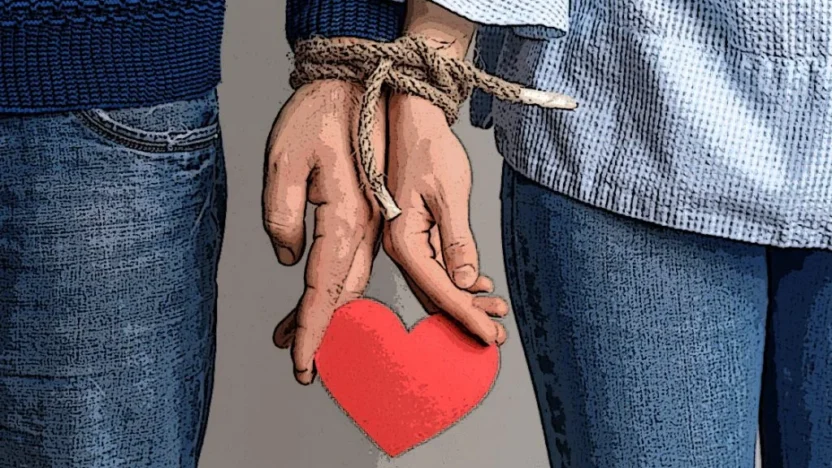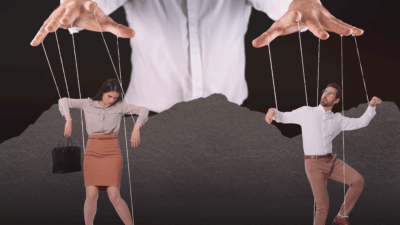
In today’s fast-paced world of relationships and modern love, it’s easy to lose sight of who you really are when deeply involved with a partner. Many people mistake dependency for intimacy, sacrificing their own identity in the name of love. This article highlights the subtle but crucial signs that you may be losing yourself in your relationship. Updated with fresh insights for 2023, we explore the red flags, emotional toll, and offer practical strategies to reclaim your individuality. Read on to discover how to spot self-loss in love and steer your life towards balance and self-discovery.
Understanding the Concept of Self-Loss in Love
Losing yourself in a relationship is a subtle process in which the boundaries between your own identity and your partnership gradually blur. This concept of self-loss is often unnoticed until significant emotional imbalances appear. Experts warn that an excessive focus on togetherness can lead to neglecting your personal pursuits, ultimately causing dissatisfaction.
In modern relationships, self-loss is sometimes misinterpreted as an expression of intense love. Societal expectations and cultural narratives may pressure you to sacrifice your own ambitions in favor of your partner’s needs. Emotional dependency and prioritizing another person above yourself can erode your sense of self over time.
Recognizing this phenomenon means understanding that true love should complement, not replace, your individuality. The key is to respect both your partner and your personal needs. Relationships thrive when built on mutual respect and individuality.
Recognizing the Red Flags in Your Relationship
Several subtle indicators may suggest you are losing touch with your true self. For example, consistently sacrificing your interests or putting aside passions you once cherished could serve as a red flag in your relationship.

A continual feeling of emptiness or confusion about your identity outside the relationship is another warning sign. When friends and family comment on changes in your behavior, it may be that your individuality is being overshadowed. These signals indicate that your relationship might be consuming your sense of self.
When you constantly prioritize your partner’s opinions over your own, healthy personal growth can suffer. If decision-making transforms into a joint process that minimizes your voice, it is a strong indicator that you are gradually losing yourself. This section reminds you to trust your inner voice.
Dependency Over Self-Expression
Ceasing to express your opinions or abandon your interests points to a dangerous dependency. It is crucial to maintain your hobbies and personal goals for a balanced life.
A healthy relationship values both partners’ individuality and personal expression.
Isolation from Friends and Family
Withdrawing from your social circle is another critical red flag. A healthy relationship should enhance your social connections, not limit them.
If your partner discourages social interactions, it may be time to reassess the dynamics of your relationship.
Emotional and Psychological Impacts

Being overly immersed in a relationship can have deep emotional effects. Constantly suppressing your feelings to meet your partner’s expectations can lead to low self-esteem and anxiety. This imbalance may result in long-term psychological challenges.
The loss of self often manifests as chronic stress or a pervasive sense of unfulfillment, even in the midst of love. The pressure to meet both personal and social expectations can compound these feelings, making it critical to address them early before deeper emotional scars form.
Maintaining healthy boundaries is not just a personal need—it is a cornerstone of mental well-being. Acknowledging the psychological costs of self-neglect empowers you to seek equilibrium in your relationship.
Expert Opinions and Real-Life Narratives
Psychologists and relationship counselors have observed that many individuals lose touch with themselves while trying to meet a partner’s expectations. Studies show that healthy relationships thrive on mutual self-growth rather than self-erasure.
Real-life narratives reveal that people often recognize these signs only after experiencing significant emotional distress. These stories highlight recurring patterns of isolation, dependency, and the gradual loss of personal identity, underscoring the widespread scope of self-loss.
Listening to professional advice and learning from the experiences of others can be transformative. Expert opinions emphasize the importance of self-awareness and maintaining personal space, even within an intimate relationship.
Insights from Relationship Therapists

Therapists emphasize that self-care and personal interests are as important as quality time together. They recommend regular check-ins about personal objectives to maintain balance.
Counselors suggest that both partners should nurture individual hobbies and social circles to avoid dependency.
Real-Life Case Studies
Case studies from 2023 illustrate how setting firm personal boundaries helps individuals reclaim their identity. Such narratives offer hope and practical guidance in overcoming self-loss.
Many personal journeys begin by recognizing red flags and seeking professional help to restore balance.
Strategies for Rediscovering Yourself
Reclaiming your individual identity requires deliberate action and self-reflection. Dedicating time for hobbies, self-care, and introspection can rebuild your sense of self. This journey towards recovery involves reconnecting with past passions and discovering new ones along the way.
One effective strategy is to schedule regular periods of solitude, which allow space for introspection and personal growth. Activities such as journaling, meditation, or engaging in creative endeavors promote self-rediscovery and foster emotional healing.

Moreover, seeking support from trusted friends, family, or professional counselors can provide the necessary perspective to regain what you might have lost. In the end, a strong sense of self not only benefits you but also enriches your relationships.
Content Additional
For many, the realization of losing oneself in love comes slowly and may be obscured by the excitement of new romance. However, continuous self-evaluation is key. In 2023, societal pressures and the digital age have further complicated personal boundaries in relationships. Recognizing these subtle shifts early is essential for maintaining long-term emotional health.
Modern love is increasingly influenced by social media, where idealized relationships often mask deeper emotional issues. As a result, individuals may begin to question their self-worth based on likes and external approval, slowly drifting from their true identities. This section underscores the importance of detaching social validation from personal identity.
The journey towards reclaiming your identity may include embracing solitude and quiet reflection. Mindfulness practices such as yoga and meditation can help you connect with your inner self, especially when relationship dynamics become overwhelming. Remember that you are much more than just a partner.
In conclusion, noticing the signs of losing yourself in a relationship is the first vital step to reclaiming your individuality. This article outlined key indicators, provided expert opinions, and suggested practical strategies to help you regain control of your identity. Remember, a healthy relationship should foster mutual growth and self-empowerment. Do not hesitate to seek help if you feel submerged in your partnership. Embrace the journey of self-discovery and ensure that love enhances your life rather than diminishes who you truly are.




